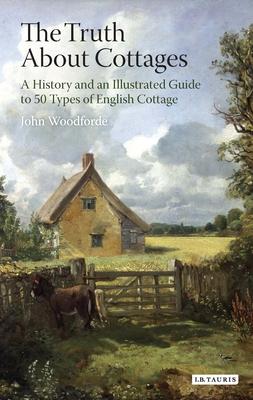The old cottages of Britain are amongst the country's best-loved treasures. Threatened on all sides - whether by the dilapidation of woodworm and dry-rot or the schemes of planners and developers - they are fiercely protected by all those who live in (or simply dream of living in) a country cottage. Yet few have any idea about what life in a cottage was really like both within and outside our living memory."The Truth About Cottages" is a small classic - in the words of the "Sunday Times", 'required reading for cottage addicts; true scholarship, engrossing history and a real eye-opener for romantics.' It tells the remarkable story of cottage life since the seventeenth century, often using the words of the people who built the cottages or lived in them. For example, there is the instance of the horse that shared a nineteenth-century, single-room cottage with its twelve human inhabitants, as well as the documented tribulations of rural labourers and barefoot urban dwellers alike, whose homes were as unsanitary and cold as they were picturesque. The book goes further, to provide an informative illustrated guide to the fifty main types of cottage, dating from the fifteenth century.
It remains the ideal companion for explorers of these gems.

The Truth about Cottages: A History and an Illustrated Guide to 50 Types of English Cottage
The old cottages of Britain are amongst the country's best-loved treasures. Threatened on all sides - whether by the dilapidation of woodworm and dry-rot or the schemes of planners and developers - they are fiercely protected by all those who live in (or simply dream of living in) a country cottage. Yet few have any idea about what life in a cottage was really like both within and outside our living memory."The Truth About Cottages" is a small classic - in the words of the "Sunday Times", 'required reading for cottage addicts; true scholarship, engrossing history and a real eye-opener for romantics.' It tells the remarkable story of cottage life since the seventeenth century, often using the words of the people who built the cottages or lived in them. For example, there is the instance of the horse that shared a nineteenth-century, single-room cottage with its twelve human inhabitants, as well as the documented tribulations of rural labourers and barefoot urban dwellers alike, whose homes were as unsanitary and cold as they were picturesque. The book goes further, to provide an informative illustrated guide to the fifty main types of cottage, dating from the fifteenth century.
It remains the ideal companion for explorers of these gems.